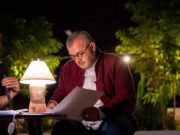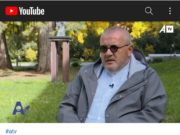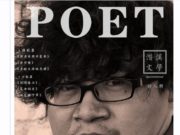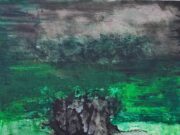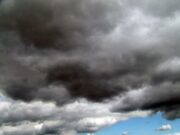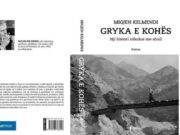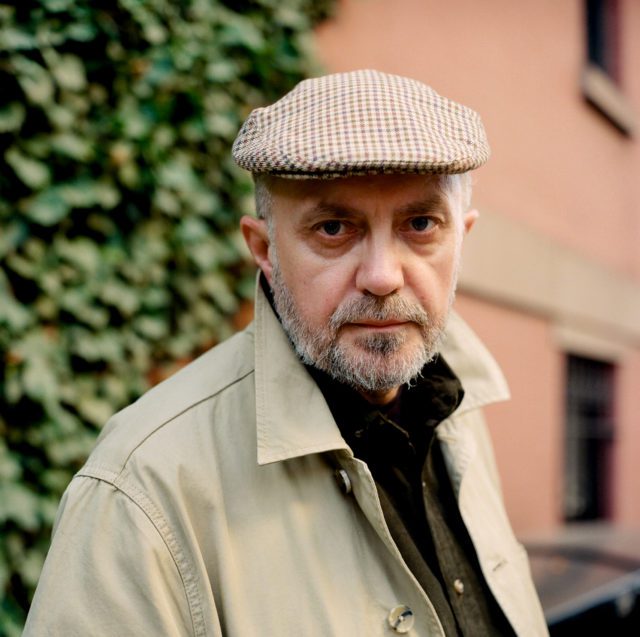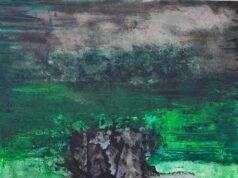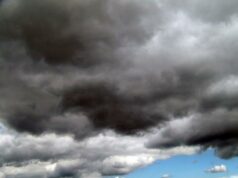An essay on Joseph Brodsky
(Translated from the Ukrainian by Jaroslaw Anders)
All credits to The first publisher:

I shall begin on that cold spring day in 2008 when I was sitting on the patio of an Italian restaurant in Little Italy with Eva Hoffman. We were talking about all sorts of mostly unimportant things.
Eva was sipping a gin and tonic and I was drinking a beer. Eva is a former editor of The New York Times Book Review, a writer, and an essayist. When she was thirteen, she moved with her family from Krakow to Vancouver, translating her departure into the personal experience of living in a new language. As it turned out, she was also partly associated with the Ternopil region in Ukraine.
Incidentally, our conversation touched upon Joseph Brodsky. Incidentally or not, we exchanged a few words about the poet, who, by the way, used to live nearby, on Morton Street. “Nearby” is of course a metaphor, but not a hyperbole, because Little Italy in Manhattan is adjacent to Soho, which, in turn, borders on Greenwich Village. Indeed, it was just a few blocks away.
Eva recalled a recent experience with her students from Hunter College, where she was teaching as a visiting professor. For one of her classes, she handed out texts she believed would best illustrate the subject of memory. The handouts included Brodsky’s English-language essay “A Room and a Half.” To Eva’s great surprise, some of her students had never heard of Brodsky. We later spoke with sadness about time, and memory, and all that. The waiter brought us the check. Having said our good-byes, we went our separate ways. It was an entirely typical New York way to end a meeting: you dissolve like sugar into coffee.
I am a frequent visitor to the Cornelia Street Café in Greenwich Village and one day I finally decided to check out Morton Street, where Brodsky lived for many years. I can’t say I get a special pleasure from visiting places that bask in the glow of famous names, but after seven years of my regular readings at Cornelia Street Café, I simply couldn’t resist the temptation. It turned out that it was a five minute walk from Cornelia to Morton Street. You cross Bleecker Street and Seventh Avenue and you find yourself right in front of the elbow-shaped canyon of Morton Street. 44 Morton Street is a red-brick, four-story tenement with steep steps leading to the white, pseudo-Greek portico of the main door. It bears no memorial plaque about Brodsky and the infrequent pedestrians—the street is indeed quiet and deserted—continue on their way without a pause.
It is hard to guess what brought Brodsky to Morton Street—chance or somebody’s advice. While looking for a New York apartment, he probably considered many things, from price to location ¬– it is in the center of Manhattan, with many coffee shops and restaurants around, the Hudson River nearby, and scenery with something vaguely European about it. Or perhaps it is what Europeans want to believe, trying to justify choosing America?
*
The Russian Samovar restaurant on 52nd street, once owned by Joseph Brodsky, Mikhail Baryshnikov, and a Russian-born former language teacher turned restaurateur, Roman Kaplan, occasionally holds poetry readings in a room on the second floor. The dining area is on the first floor. There is a coat room to the left and a toadish-green bar to the right. What strikes the visitor first is a display of huge bottles with various brands of vodka. Further down stands a white Royal piano played by Sasha Izbitser. On the right side, there is a brick wall with photographs of celebrities who have visited the restaurant: from Bella Akhmadulina to Miloš Forman.
On the second floor, a full body bronze statue of Joseph Brodsky stands on a table under samovars in the left corner of the rectangular room where Russian-speaking New Yorkers gather for readings. The statue is based on a well-known photo of Brodsky. The photographer caught him in the middle of the street, with a briefcase under his arm and a scarf around his neck. The scarf and the poet’s long coat are flapping in the wind. The dynamics of the figure captures the poet’s hastiness and perhaps also his inner unrest. In the evenings, I like to sit next to the statue, making myself comfortable in a soft leather chair creaking like old wood.
Forbidden Brodsky
For my generation, Brodsky’s name probably resounded first at the beginning of perestroika, when a Moscow-based journalist Henrikh Borovik presented a TV documentary about Jewish emigration to Israel and America. The film was obviously propaganda: one weeping family from Israel begged the Soviet government to give them back their Soviet citizenship and pledged to walk to their country on foot if necessary.
In America, according to the report, senior citizens watch Soviet movies on VHS and bohemian youths make fun of Pravda headlines chanting “Prav-da-da-da!”
Borovik journalist commented: Look what scum have left our glorious country. But one of those scumbags said: “Well, who needs Russian literature here in America, perhaps except Solzhenitsyn or Brodsky? ” That was how, at least for me, Brodsky’s name came up for the first time. Of course, I could not know then about his trial, or about his exile to the village of Norenskaya, about the circumstances of his departure for America, about his friendship with Auden, or about his poems and essays.
The complete ban on Brodsky was something to be expected from a system that blacklisted everyone who did not acquiesce to it in every possible way. Such was the case of Joseph Brodsky, an exile forced to leave the Soviet Union and seemingly erased from Russian culture forever.
Later, after his Nobel Prize, Brodsky became an object of veneration in the Soviet Union. His figure was inseparably linked with the Nobel aura. Later still, when the transcripts of his 1964-trial were published, together with his memoirs from his Leningrad days, the details of his complicated relationship with Marina Basmanova, his conversations with Akhmatova, his poetic attitude to Mandelstam and Tsvetaeva, his meetings with Auden, and also some facts about his American life—all this deepened my conviction that beyond the text there existed another inter-textual Brodsky who, like it or not, supplemented Brodsky the poet. I also started to think that the idea that each poet’s biography is fully contained in his poems is only half- or even a quarter-true.
To be fair, Brodsky’s lack of publication in the Soviet Union was partly compensated in the west, where unofficial literature in the East was carefully followed, and where his poems and books started to appear in translation. After all, judging by the standards of Soviet citizenship, what were the prospects for a poet who had served a sentence in exile, had spent some time in a mental institution, had no steady employment, was consorting with foreigners, and moved in suspicious circles of Leningrad bohemia constantly surveilled by the KGB, even though he wasn’t really a dissident?
If we look for a similar case, the first person who comes to mind is Vasyl Stus. Why Stus? Because of some telling similarities, as well as differences, between him and his Russian counterpart. Although Stus’s poetry is quite unlike Brodsky’s, they both belonged to the same generation and, because of their moral and poetic principles, they both refused to play any games with authorities. They both rejected the very idea of compromise, and they both explored the deeper layers of poetic language. That is why in many poems by Stus and Brodsky alike the dominant motifs are reflection on culture, abstractions, and existential questions. Their poems show a strong inclination toward philosophical contemplation of reality and moral choices, of choosing the right path, and of the relationship between a poet and authority. Their similarities can also be found in the dialogue both Brodsky and Stus conducted with Rilke– an emblematic figure for European modernism and for them personally. Stus translated Rilke and Brodsky wrote an essay “Ninety Years Later,” a comprehensive analysis of Rilke’s poem “Orpheus, Eurydice, Hermes.”
And what separated them? Well, to begin with, the childhoods in Leningrad and Donbas, Brodsky’s intelligentsia background and Stus’s peasant origins, as well as Brodsky’s Jewish and Stus’s Ukrainian roots that place them differently within the historical and imperial context. Brodsky sees history through the prism of disrupted Jewish history (“Jewish Cemetery,” “Jewish bird cow” from “Afterward to a Fable”), through Old Testament motifs (“Flight into Egypt”), and personified Hellenic and Roman history—a culture of vanished empires and recent historical events (“On the Death of Zhukov,” Afghanistan in “Lines on the Winter Campaign, 1980).
For Stus, the sense of history is rooted in the memory of defeat (“A Hundred Years Since the Sich Died,” „From the Chronicle of Samovid,” “N.G. Chernyshevsky’s Laments”), which explains his attitude towards the Empire. That is why their poems containing “imperial” motifs (directly or indirectly expressed) place both poets on opposite sides of the barricade. Jewish Brodsky and Ukrainian Stus see the empire, their own relationship to it, and also the Empire’s future in a radically different way. For Brodsky, the transformation of the Soviet Union into post-Soviet Russia was perfectly natural. In Stus’s case, the issue is more complicated. I am not sure what he thought about the complete emancipation of Ukraine from Russia, but he was convinced that “amicable” relations between Russia and Ukraine should cease at some point until Ukraine liberates itself from this forced love. That is why the Empire, though it rejected Brodsky’s poetic gift, considered him, through the mediation of Russian language and culture, its own delinquent, someone who went astray. On the other hand, the Empire always considered Stus a delinquent outsider who dared to question its hallowed existence. Under those circumstances, just forcing Stus beyond the Empire’s borders was simply out of the question. He had to be destroyed.
*
I have no doubt that Brodsky was “fortunate.” He was fortunate with his internal exile, because that is how the West has learned about him; he was fortunate with his milieu, which influenced him in good measure (Leningrad, Akhmatova); he was fortunate with America (Auden, Miłosz, Paz, Sontag, Strand, Hecht, and Wolcott). Certainly all these “fortunate” elements would amount to nothing were it not for his poetry.
Brodsky the Poet
After reading several of Brodsky’s poems for the first time, I felt as if an electrical current had had run through my body. His poetics was unlike anything offered by prominent Russian Shestydesatniky (“The Sixties Generation”)—it did not resemble Akhmadulina’s melos or Voznesensky’s futurism/avant-gardism, or the op-ed style of Yevtushenko. The nature of Brodsky’s poetry, it seemed, was clearly at variance with the well-established and celebrated poetics of his contemporaries. Entire treatises are written today about the influence of Yevgeny Baratynsky and John Donne on Brodsky. It was established that his versification carries on certain rhythmic and melodic traditions of Russian poetry. For me, the important thing was Brodsky’s sense of an idea in poetry—of his poetry’s metaphysical roots in the tenets of Christianity and Judaism. In fact, Brodsky’s idiolect, his unique literary personality, manifests itself also in his conceptual approach to the composition of his own books. We get the impression that rather than choosing his poems randomly, shuffling them like cards in a deck, he wrote those poems working from a specific concept and from a common general idea.
That is why Brodsky is a poet of unique resonance, timbre, and melos—a poet of the city, of human existence and nature, a poet who personalizes history, and reflects on culture. This, in turn, links him to his contemporaries—to Russians and other Slavic poets such as Miłosz, Herbert, Szymborska, Stus, and even English-language poets, from marginalized domains where history—imperial or colonial—still occupies a prominent place in the collective and individual memory . It links him to them, yet at the same time sets him apart.
Brodsky wrote about the Leningrad landscapes of his life in his famous 1985 essay “A Room and a Half.” It was composed in English and the choice of the language was absolutely deliberate. According to Brodsky, only English could protect the text from the erosion of time.
A room-and-a-half was the space assigned by Russian authorities to the war veteran Alexander Brodsky. It was the space in which his son, the future poet, grew up and developed. Brodsky’s essay, however, is dedicated to memory more than space. In it, he grows the muscle of guilt about his parents, who were never allowed to visit their son in America, and the muscle of memory about the objects that surrounded him in those rooms, about the smell of communal apartments, about their residents, about streets and sacral architecture—and tests this muscle’s strength by stretching it like a bow-string over his contemporary condition as a denizen of America.
The city in which Brodsky grew up was an imperial city. It was apparent, first of all, in its architecture whose visual impact, grandeur, and might influenced the residents’ subconscious, many Soviet proletarian neighborhoods notwithstanding. This could not be without an impact on Brodsky’s future inclinations.
For Brodsky, self-expression in poetry was less important than something else. The form of his poetry is rather traditional, although he would loosen and innovate it by using inventive stanza patterns, enjambments, the possibilities of different sound registers present in Russian speech, by mixing up landscapes, sensations, intellectual stimuli. Brodsky wrote at a time when the greatest Slavic poets, most significantly Poles (Miłosz, Herbert, Różewicz, Szymborska) had freed themselves from the encumbrances of rhythm and rhyme and considered history – memory – time the real cornerstones of their poetry. Their personalized history differed from the Russian one, although their nation had endured no lesser cataclysms.
The Empire According to Brodsky
Among the reasons for writing this essay was not only my desire to re-read Brodsky following Irena Grudzińska-Gross and Lev Loseff, who almost simultaneously published books about Brodsky in Polish and Russian, or my wish to contribute something to the body of Brodsky criticism. One of the reasons was a certain problem Grudzińska-Gross and Loseff did not ignore, but did not fully resolve either—the poem “On the Independence of Ukraine.”
I was prompted to write these notes by something very simple: an article titled “Shocked by Brodsky” I found on the Sem40 website. The author, Sonia T., describes what must have been Brodsky’s last public reading in New York in 1996. She shares her impressions about the evening and shares that when the poet read “On the Independence of Ukraine,” she walked out in protest during the last lines.
Grudzińska-Gross touches upon this problem in her book, stating that, “[Brodsky’s] Russian patriotism is affirmed by […] the poem “Nation,” as well as another poem that attacks Ukraine from imperial and great-Russian positions.”
“He has read this poem to Tomas Venclova,” she continues, ”who informed me in a conversation that he had advised against publishing it.”
In my opinion, Brodsky’s worldview is too complicated and self-contradictory to hastily appoint accents that would be acceptable to all. We are not talking here primarily about his poetic and aesthetic sympathies or antipathies, or about his purely human faults and virtues, but about a position from which he is observing the world and commenting on political as well as daily occurrences. The crux of the problems is how does one separate—in Brodsky or anybody else—one’s aesthetic from social orientation, one’s purely human sympathies from established, generally accepted, politically correct opinions?
It would appear that since Brodsky suffered at the hands of the Empire, which condemned him to exile, prevented him from realizing himself as a poet, and even refused to allow his parents to see their only son—any defeat of that Empire, its destruction and death, should evoke a sense of happiness or at lease of personal victory, not a desire to defend it. Indeed, Ukraine’s independence did spell the death of the Empire, no matter how hard the Empire tried to prevent it.
From what vantage point does Brodsky try to view Ukraine? From the position of Russian patriotic intelligentsia? From the position of a Western Slavophile?
From the position of a cosmopolitan? And there is another problem, equally difficult to resolve but relatively easy to define. Living in America, where everything is so politically correct and communicating with his friends who brought with them their complexes of victimhood by communism (Miłosz) or colonialism (Walcott), Brodsky challenges in his poem every possible rule of required public etiquette. He has produced a text which, in the event of its publication, would clearly define his position not only toward Ukraine, but also toward Lithuania and Poland—countries that he truly loved and whose cultural representatives he befriended. On the one hand, Brodsky—a spokesman for Russian language and literature—was under no obligation to love Ukraine even though, as his name indicates, his paternal ancestors must have harkened from Brody in Ukraine. Because of this fact, at least, he might have shown some sympathy for Ukraine. But he didn’t. As Brodsky affirms, for obvious reasons his family hardly ever mentioned their life before the Revolution. It is likely that Brodsky never heard family tales about distant ancestors from Volhynia, once within the borders of the Polish Crown, although he was quite familiar with centuries of common Ukrainian-Jewish history.
Zbigniew Herbert had more reasons to write about Ukrainians and Lviv, where he grew up and spent much of World War II. It is even possible to consider Herbert a poet of the borderlands, who could have nursed a painful memory of the Kresy, the once-Polish eastern lands, and the complex of defeat. Czesław Miłosz, another poet of the borderlands, might have had equal grounds to blame Lithuania for its desire to separate itself from the Soviet Union but not to re-join Poland. But in both cases such propositions would sound quite ridiculous.
As a matter of fact, during the 1988 Lisbon Conference, to which Brodsky, Miłosz, Rushdie, Sontag, and Walcott were invited, Brodsky vehemently defended Russia not just as an empire of culture but as a political empire. He took some liberties with the definition of Central Europe and its historical and spiritual foundations, which provoked strong objections from his colleagues. Derek Walcott tried to moderate the conflict, but he was not particularly well-versed in European affairs. Therefore, the poets from former empires and from borderlands diverged in their assessments of the current situation.
The imperial idea appears quite frequently in Brodsky’s poems, usually in the Greco-Roman context. These classic imperial models evoke in the poet if not awe, at least admiration, presumably not on account of constant wars and territorial conquests, but culture—the pride of every empire.
The Soviet empire was dying, a large part of it—Ukraine—was breaking away, and Brodsky’s reaction seemed quite natural. Already in 1985, he entered into a polemic with Milan Kundera. No matter what has been said about this exchange, especially by Russian commentators, one thing was obvious and undeniable: It was a skirmish between two opposite worldviews of Europe and Asia represented by Kundera and Brodsky – between rational European thought and Asiatic emotional turmoil and mystical probing of the fathomless depths of the human soul. For Kundera, the very thought of Russia aroused a sense of threat. Russia signified aggression and belligerence. What is more, Brodsky decided to base his arguments against Kundera on Dostoyevsky, which was probably the most unfortunate way to settle historical and cultural scores. And what if Kundera resolved to respond with Kafka?
One may agree with Irena Grudzińska-Gross that Brodsky was born and raised in one empire (the USSR), lived in a second (America), and found his eternal peace in the third (Rome). This, however, does not negate the fact that in the simple human sense Brodsky was able to accept some imperial borderlands, such as Poland and Lithuania, and to dismiss others, such as Ukraine.
Brodsky’s poets
Brodsky frequently expressed his views on poetic subjects and constructed his own canon of poets who were important to him. He contributed in this way to the world renown of Tsvetayeva and Mandelstam. He carefully watched over the quality of the English translations of Akhmatova and harshly denounced what he perceived to be faulty interpretations of her poetry.
Of course, at the core of his poetic predilections was the poetry of Pushkin, Baratynsky, Pasternak, Zabolotsky, together with John Donne, Auden, and Frost. He never said a single word about the poets of the New York School, Allen Ginsberg, or Laurence Ferlinghetti – they were obviously not his cup of tea. For me, the verse in which he contrasts “the lines of Alexander” with “Taras’s gibberish,” are especially intriguing and revealing. Alexander Pushkin and Taras Shevchenko were two prominent poets who also suffered at the hands of the empire: Pushkin was exiled to “the South,” while Shevchenko suffered a more severe punishment – military service in the steppes of Orenburg. Brodsky, who was also exiled to the Arkhangelsk district after he served a prison term, must have compared—if he thought about it at all—his feelings about imprisonment and exile with Shevchenko’s. As a poet, even without reading Shevchenko’s cycle “In the Dungeons,” he could intuitively sense that he was repeating the Ukrainian poet’s fate a hundred years later. Brodsky’s rejection of Shevchenko, however, did not result simply from the clichés about Shevchenko’s revolutionary views, or about him being a commonplace, home-grown talent. There was probably something deeper here. Incidentally, Pushkin was also against the independence of Poland, although he befriended Mickiewicz.
What does “Taras’s gibberish” mean?
Marina Temkina and I made an appointment to meet in the Russian Samovar at one of their poetry readings. It didn’t work out, because someone brought a group of students, the room was incredibly packed, and we just nodded at each other from a distance and moved our meeting to another time and place.
From our email exchanges it became clear that Marina knew Brodsky quite well, translated his essays into English, and was familiar with the details of the poet’s life in New York. She invited me to her place, which was in the Chelsea neighborhood in Manhattan. Using this opportunity, I turned onto Twenty Third Street to have a look at the Chelsea Hotel, the façade of which was covered, like a veteran’s chest full of medals, with plaques commemorating writers who had lived and worked there.
Marina set the table and quickly prepared a meal. Cheese, a bottle of French wine, and candlesticks with candles occupied an honorary place on the table even before my arrival. A quiet New York street seemed to be well-protected from the noise of Seventh Avenue. I learned from Marina about the visit of Brodsky’s son in New York and about the poet’s death at his home in Brooklyn Heights, which he had bought and where he had moved in with his family. Coincidentally or not, the neighborhood was once the home of Walt Whitman, Tom Wolfe, W. H. Auden, Arthur Miller, Truman Capote, and Norman Mailer.
When I asked Marina what she thought about the poem “On the Independence of Ukraine,” she responded with her characteristic radiant sadness that his anti-Ukrainian feelings could be explained by Jewish post-Holocaust trauma. And yet, the poet seemed to have forgiven Poland and Lithuania, but not Ukraine.
I remember then an episode from the conversation between Russian journalist Solomon Volkov and Brodsky about Italy. Brodsky mentioned Ezra Pound in reference to his visit to Pound’s longtime lover Olga Rudge. Brodsky attended some festival with Susan Sontag, who by pure chance had met Pound’s aged companion in the street and asked Brodsky to accompany her on a visit to her to her place. As Brodsky recollects, throughout the evening Rudge tried to correct what she considered misunderstandings about Pound’s fascism and anti-Semitism. At some point, Sontag made a reasonable comment that she absolutely could not accept those explanations because they make Pound look like another Tokyo Rose, an opportunistic collaborator who conducted propaganda broadcasts from Tokyo meant to demoralize American soldiers fighting with the Japanese.
*
I drove once to a recording at NTV-America along the Hudson River through torrential rains and heavy wind. The street was empty and the occasional car that passed me would splash my Toyota up to its windows. When red lights lit up on the studio cameras, I and the interviewer, Mikhail Gusev, talked for a while about many different things until we touched upon Brodsky. Gusev asked me about the poem, suggesting right away that if it were written by anybody else, there would be no need to talk about it. Perhaps there wouldn’t be.
Why is Brodsky Wrong About Shevchenko?
Shevchenko was not one of Brodsky’s favorite poets.
If Brodsky had known Shevchenko’s biography at all, he would probably have known it only in general terms. But, paradoxically, the two poets were linked by at least several circumstances: their confrontational position of “a poet against authority,” their arrests, exiles, oppression by authorities, prohibitions imposed on them (for Shevchenko—to write, for Brodsky—to publish), the location of important parts of their lives (Shevchenko’s Saint Petersburg and Brodsky’s Leningrad), and, to a certain degree, also by the language, because Shevchenko also wrote poetry and prose in Russian.
In the last line of his poem “On the Independence of Ukraine,” after a long tirade full of historical ruminations, Brodsky turns to poetry as the highest authority to judge history, and calls up two names—Pushkin and Shevchenko. For Brodsky, it is both characteristic and perfectly understandable: considering poetry the highest form of artistic expression and the highest form of language, he absolutely could not limit himself to historical arguments or to his personal emotional reactions. Pushkin and Shevchenko are the two judges Brodsky appeals to in order to justify or reject Ukrainian independence and to assess its achievability. Isn’t this why his neutral-positive statements about Pushkin and extremely negative statements about Shevchenko become synonymous with his view on the whole national traditions that stand behind those names?
Brodsky condemns “Taras’s gibberish” not only from the point of view of his poetic or aesthetic standards. We don’t even know which of Shevchenko’s works he had read, or if he had read any. Perhaps he just imagined Shevchenko’s writing, or he had read something in the Soviet press in 1961, during the centennial of Shevchenko’s death. Or maybe he came across some selection of his work in literary textbooks. Was that enough to say that everything in Taras is “gibberish,” that his Ukrainian history, or his Ukrainian perspective on history, is a myth, that a direct response to Shevchenko’s treatments of history and mythology (“The Dream,” “The Caucasus”) is Pushkin’s poem “Poltava”?
“The material a poet uses is his personal history; this material, if you want, is itself history,” Brodsky once said.
Pushkin, incidentally, belonged to Brodsky’s canon. In Akhmatova’s circle, Pushkin generally occupied a prominent place. In addition, the physical environment ¬–Tsarskoye Selo , Saint Petersburg, the Moyka River – enhanced Pushkin’s presence in the group’s conversations about poetry and poets. In a picture taken in New York by Marianna Volkova we see Brodsky, dictionaries, and a bust of Pushkin. While talking about Akhmatova’s circle, known as the Four Akhmatova Orphans, he draws the following parallels: Yevgeny Reyn is Pushkin, Dmitry Bobyshev is Delvig, Anatoly Nayman – Viazemski, and he, Brodsky, is Baratynsky. Irena Grudzińska-Gross finds a number of Pushkin motifs in Brodsky—first of all the motif of Ovid and the empire from Pushkin’s “Kishinev” cycle and Brodsky’s references to Pushkin in the poem “Sophia.” She remembers that in Brodsky’s opinion the Poles had an innate aspiration for independence. Why didn’t he see such an aspiration in Ukrainians? He did not want to? He couldn’t?
Brodsky’s article in The New York Times was prompted by Milan Kundera’s essay on the nature of totalitarianism, on the Prague events of 1968, on Dostoyevsky, and on Kundera’s own anti-Russian feelings. Brodsky’s response had a polemical title “Why Milan Kundera is Wrong about Dostoyevsky.” Its polemical character clearly suggested that the author will try to build his own argument by countering the arguments of his opponent. Kundera did not attack Russian culture. He merely expressed the feelings of a Central European who had suffered the consequences of a violent death of this culture, even it can boast the names of Dostoyevsky and Tolstoy. Brodsky, as a representative of a culture which was imperial to the core, and which was rolling its tanks into Prague, reacted mainly in defense of his own comfortable feelings about this culture and its place. It was a defense of his private well-being. Poetry, of course, is not an essay, and by its very nature a poetic text is a confluence of many different intellectual and emotional stimuli. “On the Independence of Ukraine” is just one of many episodes in Brodsky’s wrestling with his historical and political beliefs, which he tends to elevate to the aesthetic domain. Shevchenko and Ukraine, Kundera and the Czech Republic, provoke his hostility because the content of these notions does not agree with the content of his own views on history. The polemic in Lisbon between Miłosz and Brodsky about Central Europe was yet another piece of evidence that Brodsky wasn’t particularly concerned about the rules of polite behavior; his emotions sometimes got the better of his common sense. Finally, it must be said that Brodsky’s poem is in fact a provocation and not a polemic (there is no use debating him in this particular case, not least because he firmly shuts down the possibility of such debate). If this is true, then the poet has expressed the collective subconscious of a certain part of Russian intelligentsia, which takes a similar position toward Ukraine. Such attitudes have been revived in contemporary Russia and reached the level of official discourse because of the weakening and waning of Ukrainian pro-European forces. Joseph Brodsky’s frequent visits to Italy opened before him a vista of imperial artifacts mutilated by history—the broken teeth of the Colosseum—as well as the panorama of eternity. In a sense, the same panorama can be found in New York, but is forever linked to Venice, with its constant floods, its watery element, its ships, docks, harbor cranes, the smell of seaweed, and the crying of seagulls. The poet, born in Leningrad, caught by death in New York, and put to rest in Venice, strung these cities together on the thread of his biography—a biography tied to architecture and water that rises and falls not only with yachts in their moorings, but with the rhythms of history, the wavelike sinusoids of time, the fates of poets, and the fishing corks of local anglers. Joseph Brodsky was full of contradictions in his poetry as well as in his life with its poetic myths, farewells and returns, streets and cities, the Russian word and the Jewish fate. “I was blamed for everything but the weather.” I don’t want to blame the poet Brodsky, but want to understand him. When his son visited him in New York, Brodsky wanted to take him and the whole company to dinner in Chinatown, which was not far from Morton Street. For quite some time he couldn’t decide whether to walk there or go there by car. Finally they went by car, but Brodsky wanted to give his son a farewell present and stopped by a store with military apparel where he bought a quite expensive leather U.S. Airforce jacket. His son and the other guests were baffled by this gesture because for the same money one could buy many pairs of jeans, sneakers, and t-shirts–exactly what his son wanted and asked for. But handing him the store bag with the jacket, Brodsky said: “I have never had such a jacket, and I always dreamt about it.” Poets tend to make mistakes, take quick offense, and ignore obvious facts when their own histories are contradicted by the history of others. After Brodsky’s death, his beloved Venetian lions with faces soaked in salty seawater stand as silent witnesses and guardians of his poetry, channels glimmer in the moonlight like rings on Venice’s aged hand, floods submerge the island of Saint Michaele, and the lions’ bronze wings cast their shadows on the encroaching waters. Sometimes I think that poetry flows higher than the water that advances, like barbarians, upon a Rome long-gone.


